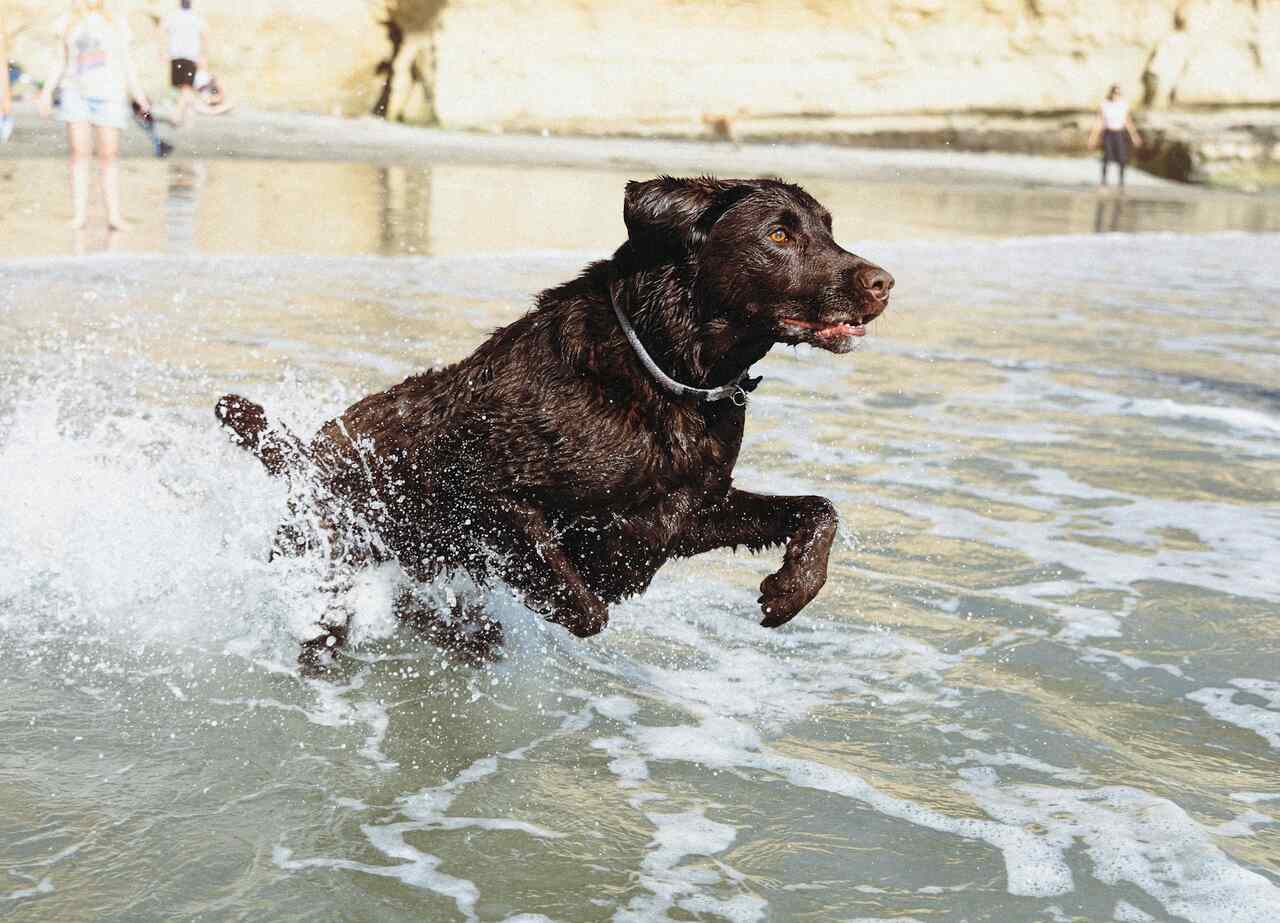 Learn the necessary care when taking your dog to the beach (Photo: Reed Naliboff/Unsplash)
Learn the necessary care when taking your dog to the beach (Photo: Reed Naliboff/Unsplash)
With the arrival of the end-of-year holidays, it is common for families to plan beach trips, often bringing their pets along to enjoy the leisure time.
+ Hilarious video: exhibitionist kangaroo loves showing off its muscles
However, to ensure the experience is safe and enjoyable for both owners and pets, it is essential to take some precautions. Before the trip, check with your family’s trusted veterinarian to make sure vaccinations, deworming treatments, and flea prevention are up to date, and don’t forget to bring the vaccination booklet with proof of preventive care for the trip.
Opt for collars and pipettes with repellents, which not only fight fleas and ticks but also repel flies and mosquitoes that can transmit diseases like heartworm (dirofilariasis), which is common along the Brazilian coastline, and leishmaniasis. Avoid letting the pet, even if dewormed, relieve itself on the beach sand, and if it does, be sure to bring a plastic bag to clean up immediately.
Research whether the destination beach allows pets, whether there are any time restrictions or rules, and if there are veterinary clinics nearby, checking their operating days and hours. During the journey, the animal should be transported properly, according to traffic laws, either in a pet carrier or using a pet-specific seat belt.
It is also important to emphasize that pets should not be medicated without veterinary guidance to prevent motion sickness or vomiting during the trip, as some medications can cause adverse effects such as seizures, which may disrupt the journey and worsen the animal’s condition.
According to Dr. Stefanie Sussai, a professor at the Veterinary Medicine course at Anhanguera University, sun protection should be a priority. Just like humans, dogs and cats can suffer from the effects of sun exposure, especially those with light-colored fur. Therefore, it’s important to apply sunscreens specifically designed for pets, particularly on sensitive areas such as the nose and ears, and ensure animals have constant access to shaded areas.
“Hydration also deserves special attention. On hot days, it’s crucial to offer fresh, drinkable water regularly, avoiding allowing the pet to drink seawater or pool water, which can cause dehydration and gastrointestinal issues.”
“Another important point is paw care, as hot sand and ground can cause burns. To avoid problems, it’s best to walk pets during times with less sun exposure, such as early in the morning or late in the afternoon,” explains the professor.
Stefanie also highlights the importance of maintaining the animal’s regular diet. During outings, avoid offering food that is not part of the pet’s regular diet, and it is essential to store food properly to prevent contamination.
After a day at the beach, the professor recommends a bath to remove salt and sand, remembering to dry the ears thoroughly to prevent ear infections caused by moisture, using the shampoos and products the pet is accustomed to.
Allergic animals should be careful with contact with sand, seawater, and pools, as they may develop an allergic reaction. Therefore, the owner’s careful observation is crucial, and if irritation occurs, a veterinary professional should be consulted.
Another recommendation is to ensure that pets do not come into contact with marine or wild animals, such as chasing seabirds or barking at stranded animals. These interactions can cause stress for the animals that are the true owners of the area, and there is also the possibility of disease transmission, both to the pets and to their owners.
Finally, the expert emphasizes that owners should observe their animals’ behavior during and after the walk. Signs of extreme fatigue, dehydration, breathing difficulty, or discomfort should be treated with attention, and symptoms like vomiting or diarrhea indicate the need for veterinary medical attention.
This content was created with the help of AI and reviewed by our editorial team.

